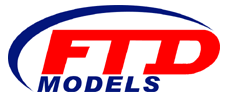Cholesterol is a crucial substance that plays a critical role in different bodily functions. While it is crucial for the normal performance of our body, having high levels of cholesterol can raise the risk of establishing heart diseases, stroke, as well as other cardio conditions. Non-HDL cholesterol is one of the key variables that health care specialists utilize to examine an individual’s risk for such health and wellness concerns. In this short article, we will certainly look into the concept of non-HDL cholesterol, its relevance, and means to handle it successfully.
What is Non-HDL Cholesterol?
Non-HDL cholesterol refers to the overall amount of cholesterol that is largely brought by low-density lipoproteins (LDL) as well as very-low-density lipoproteins (VLDL) in the bloodstream. Unlike HDL (high-density lipoprotein) cholesterol, which is thought about the “great” cholesterol that assists remove excess cholesterol from the arteries, non-HDL cholesterol consists of all the potentially unsafe cholesterol particles within the bloodstream. It gives a detailed action of all the cholesterol that adds to the growth of atherosclerosis, a condition characterized by the accumulation of plaque in the arteries.
Non-HDL cholesterol is generally calculated by subtracting the HDL cholesterol value from the complete cholesterol worth. This calculation offers a much more accurate representation of the cholesterol bits vormixil que contiene that go to greater threat of contributing to the formation of arterial plaque.
Why is Non-HDL Cholesterol Important?
Non-HDL cholesterol is taken into consideration a much better forecaster of cardiovascular risk compared to various other cholesterol actions, such as LDL cholesterol alone. It takes into account not just LDL cholesterol however also other cholesterol-carrying bits, consisting of VLDL, which likewise add to the advancement of atherosclerosis.
Having high levels of non-HDL cholesterol increases the threat of creating cardiovascular disease and various other cardiovascular problems. It advertises the build-up of cholesterol in the arteries, resulting in the constricting and also solidifying of these important capillary. This can hamper the blood flow to the heart and other components of the body, potentially leading to cardiovascular disease, strokes, or peripheral artery condition.
Elevated non-HDL cholesterol levels are typically connected with lifestyle factors such as bad diet plan, lack of physical activity, smoking, and also excessive weight. Furthermore, particular medical conditions, such as diabetic issues, high blood pressure, and kidney conditions, can likewise add to boosted non-HDL cholesterol degrees.
- Family History: Genetics likewise contribute in figuring out non-HDL cholesterol levels. If you have a household history of high cholesterol or early-onset cardiovascular disease, you might be a lot more prone to having elevated non-HDL cholesterol levels.
- Diet: Consuming a diet rich in saturated and also trans fats, cholesterol, and also high in refined carbs, can increase non-HDL cholesterol levels. Foods like red meat, full-fat dairy items, deep-fried foods, and baked items are common resources of undesirable fats and also cholesterol.
- Physical Inactivity: Leading a less active way of living without regular workout can add to greater non-HDL cholesterol levels. Engaging in routine exercise aids elevate HDL cholesterol degrees, which aids in the elimination of excess cholesterol from the body.
- Smoking cigarettes: Cigarette smoke includes dangerous chemicals that not just damage the wall surfaces of the arteries however also lower HDL cholesterol levels. This mix leads to a boost in non-HDL cholesterol as well as a greater danger of heart diseases.
- Excessive weight: Excess body weight, especially abdominal obesity, is often associated with dyslipidemia, a problem identified by unusual lipid degrees in the blood. Overweight individuals have a tendency to have higher non-HDL cholesterol and also lower HDL cholesterol levels.
Handling Non-HDL Cholesterol Levels
Maintaining non-HDL cholesterol levels within a healthy range is essential for maintaining cardio health and wellness. Below are some strategies to take care of and enhance non-HDL cholesterol levels:
- Healthy Diet: Taking on a heart-healthy diet plan is vital for handling non-HDL cholesterol levels. Incorporate more fruits, veggies, entire grains, as well as lean healthy proteins right into your dishes. Restriction the intake of saturated fats, trans fats, and cholesterol-rich foods. Instead, go with much healthier fats discovered in sources like nuts, seeds, and also olive oil.
- Regular Exercise: Participating in routine exercise aids elevate HDL cholesterol degrees and also lower non-HDL cholesterol levels. Aim for at the very least 150 mins of moderate-intensity cardio exercise or 75 mins of vigorous-intensity workout each week.
- Weight Management: Keeping a healthy weight is crucial for taking care of non-HDL cholesterol levels. Losing excess weight through a mix of a healthy diet plan as well as routine workout can considerably enhance cholesterol profiles.
- Cigarette smoking Cessation: Stopping cigarette smoking is valuable for overall cardio health. It assists enhance HDL cholesterol degrees and also minimizes the risk of creating heart diseases.
- Drug: In some cases, lifestyle modifications alone might not be sufficient to take care of non-HDL cholesterol levels. Healthcare experts might prescribe medications, such as statins or various other lipid-lowering medicines, to assist manage cholesterol levels and also lower cardio danger.
All-time Low Line
Non-HDL cholesterol is a comprehensive action of the cholesterol particles that add to the development of atherosclerosis as well as boost the danger of heart problem as well as other cardio problems. Handling non-HDL cholesterol levels via a bangsize healthy and balanced way of life, including a balanced diet plan, regular workout, weight monitoring, as well as smoking cigarettes cessation, plays a vital role in preserving cardiovascular wellness. Speak with your healthcare expert to analyze your cholesterol levels as well as create a tailored strategy to handle and also improve your non-HDL cholesterol degrees.
